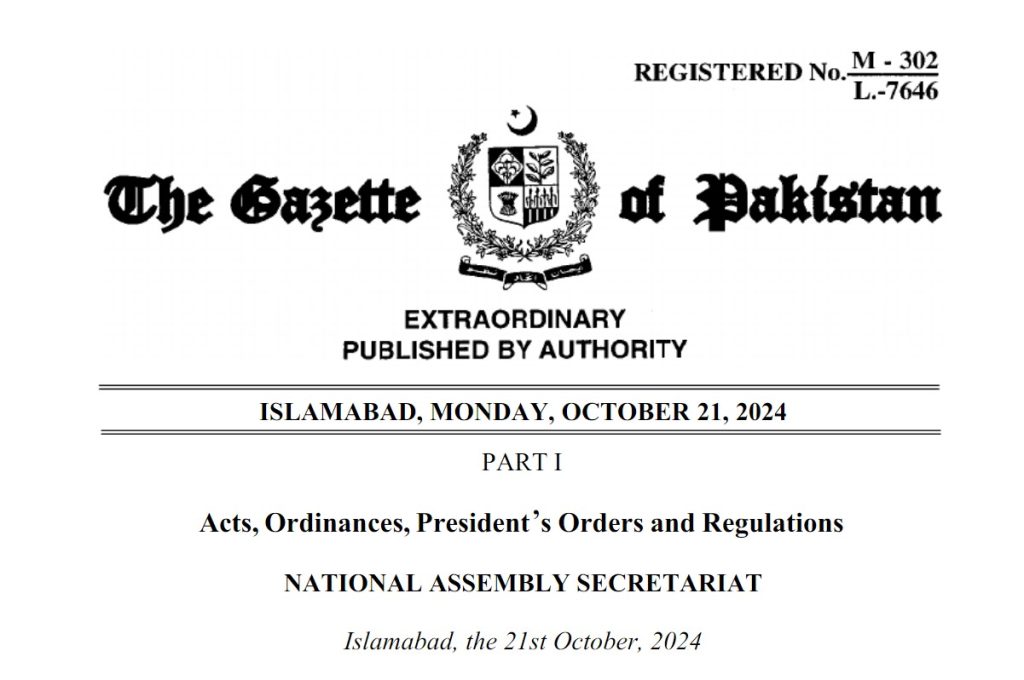ISLAMABAD: Judicial reforms were officially enacted today as President Asif Ali Zardari signed the 26th Constitutional Amendment Bill into law. This action came after Prime Minister Shehbaz Sharif advised the president following parliamentary approval.
A gazette notification confirming the president’s assent has been issued. The ruling coalition managed to pass these controversial judicial reforms with a significant two-thirds majority. They received 225 votes in the National Assembly and 65 in the Senate.
These judicial reforms are opposed by the Pakistan Tehreek-e-Insaf (PTI), which boycotted the voting process. The new law will change how the chief justice of Pakistan is selected. From now on, a parliamentary committee will choose the chief justice, who will have a fixed term of three years. Additionally, a new constitutional bench will be formed under this judicial package.
Following a lengthy session in Parliament, Prime Minister Shehbaz Sharif sent an urgent request to President Zardari in the early hours of Monday for his approval. Earlier, the Aiwan-e-Sadr Secretariat announced that the signing ceremony, initially scheduled for 6 AM, was delayed.
The ruling coalition, holding 211 seats, needed 224 votes in the National Assembly to pass the amendments. However, their numbers increased to 219 after securing support from the Jamiat Ulema-e-Islam-Fazl (JUI-F). The amendments gained additional backing from independent lawmakers associated with PTI, including Zahoor Qureshi and Aurangzeb Khichi, as well as Chaudhry Ilyas from the Pakistan Muslim League-Quaid (PML-Q).
Key highlights of the judicial reforms include:
- The tenure of the Chief Justice of Pakistan (CJP) is now fixed at three years.
- Constitutional benches will be established at both the Supreme Court and high courts.
- The senior-most judge on each bench will serve as the presiding officer.
- A parliamentary committee will nominate the new CJP from a panel of the three most senior judges.
- This committee will propose a name to the Prime Minister, who will then forward it to the president for final approval.
- The Judicial Commission of Pakistan (JCP), led by the CJP and three other judges, will oversee the appointment of Supreme Court judges.
- The JCP will also monitor judges’ performance and report any issues to the Supreme Judicial Council.
- Finally, there is a goal to completely eradicate Riba (interest) from the country by January 1, 2028.
The signing of the judicial reforms bill marks a significant moment in Pakistan’s legal landscape, aiming to reshape the judiciary and its oversight mechanisms.


